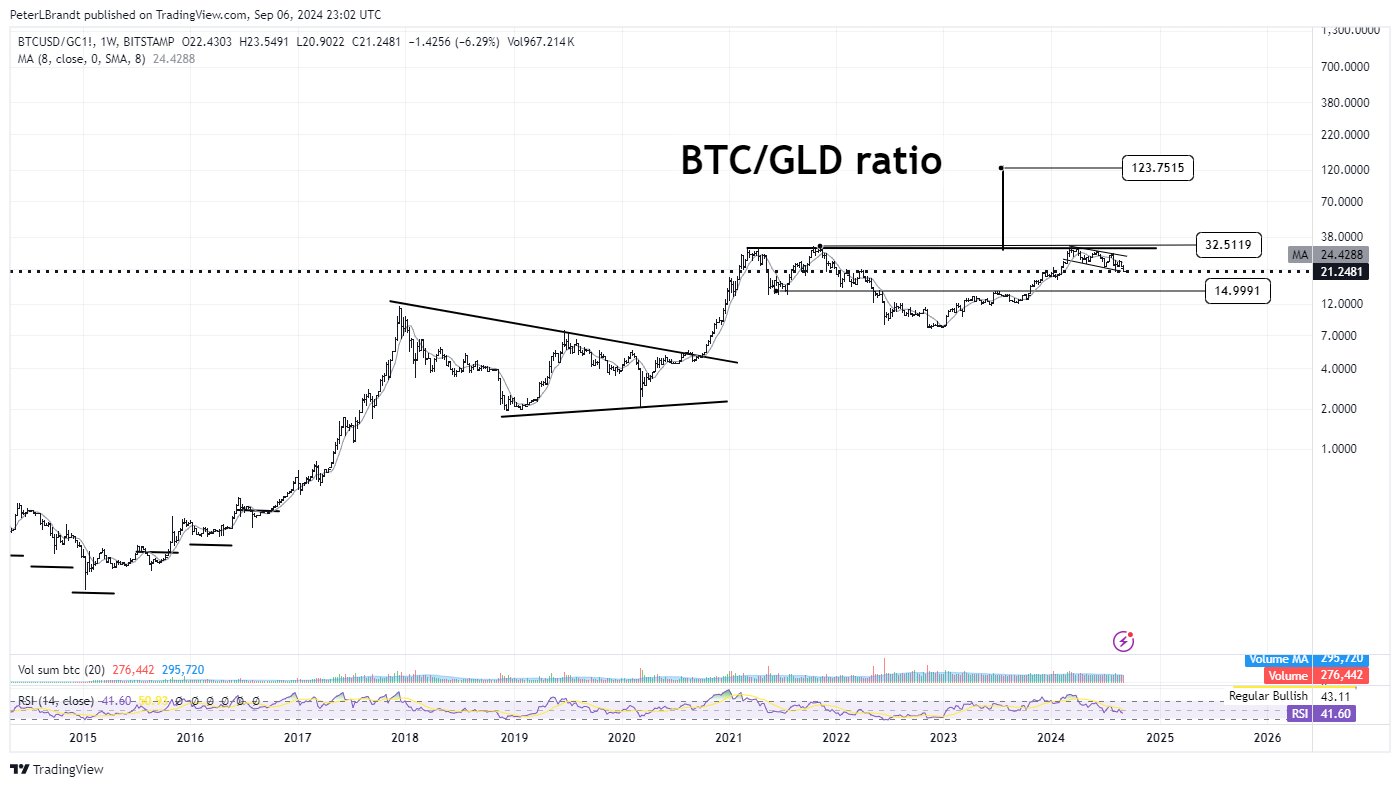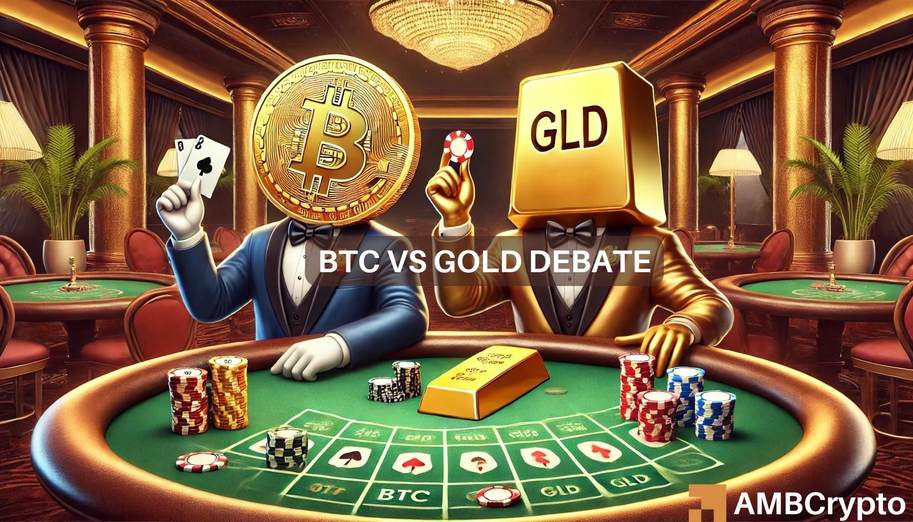- Mallers defended BTC as ‘better money’, despite Schiff’s opinion.
- BTC had more upside potential than gold on the price charts.
Strike’s Jack Mallers defended Bitcoin [BTC] in a recent debate with Peter Schiff, one of the top crypto critics. There has been a long-standing debate between gold proponents and their BTC colleagues.
What’s the ‘best money’ between the two? Is it physical gold or ‘digital gold’ (BTC)?
According to Mallers, Bitcoin is the ‘best money’ because it checks all the boxes of money properties. He said,
“BTC is the best money in the history of humanity…It is the scarcest money with a fixed supply, the most portable and the most divisible…Over the past ten years, BTC has achieved an average annual return of 60%, while gold has had a return of 2% over the past ten years. same duration.”
What is better: BTC or gold?
However, Peter Schiff disagreed with Mallers and did not consider BTC as money. He said,
“I don’t think BTC qualifies as money. Money should be the most tradable commodity and have value. Bitcoin has none. It is used for exchange and speculation. Apart from that, it is not used as money should be like gold.”
Schiff acknowledged that BTC has outperformed all assets and commodities over the past decade. However, he noted that gold, especially tokenized gold, was a better alternative to BTC.
According to Schiff, tokenized gold could be shipped worldwide faster and cheaper than BTC and is a better alternative to a digital monetary system.
“We could use gold as the basis of the digital monetary system; that is much better than when gold formed the basis of a paper monetary system.”
However, unlike BTC, Mallers highlighted gold’s heavy reliance on centralized third parties to complete transactions.
According to Mallers, this limited gold’s scalability in a global economy and led to its demonetization, which meant it could no longer be a true global reserve currency.
He claimed that BTC adoption would have been slow if gold had been a solid competitor and world reserve asset.
As a result, he predicted that BTC could still reach $250,000 to $1 million in the next 12 to 18 months, based on the liquidity injection (money inflation) and BTC’s superior technology.
But Schiff was skeptical of Mallers’ price targets. However, he noted that he would accept his wrong position on BTC if the asset were to gain mass acceptance and become one of the most important global reserve assets.
Meanwhile, he cautioned against taking speculative bets on BTC, arguing that there were better assets with relatively less downside risk. In fact, he recently declared that gold investors saw a 140% gain compared to BTC ETFs after the latest market declines.
This was true from a short-term perspective. From a long-term perspective, however, says Peter Brandt noted that BTC had upside potential.
He cited the bullish pattern on the BTC/GLD ratio chart, which could see BTC rise 123% against gold.


Source: X/Peter Brandt
At the time of writing, BTC was the 10th largest possess by market cap, with a market cap of $1 trillion. Gold, on the other hand, topped the list at almost $17 trillion.

